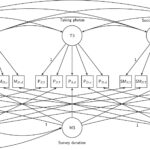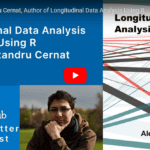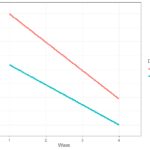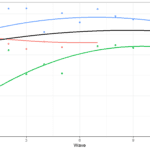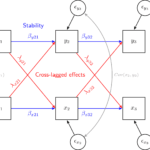Location: Room C9, Sackville Street, University of Manchester, Manchester, UK
Date: 19 June 2019
We are very excited to offer two free master classes as part of the Measurement Error in Longitudinal Data Workshop organized at the University of Manchester 19-21 June 2019. Two world leading experts, Harvey Goldstein (University of Bristol) and Kenneth A. Bollen (University of North Carolina at Chapel Hill), will discuss the latest development in analysing longitudinal data. The master classes will focus on advanced methods for investigating change in time and dealing with missing data and measurement error. While the master classes are free registration is needed due to the limited places available.
Registration to the workshop is free due to the financial support from: National Centre for Research Methods, Methods@Manchester, Survey Methods Research Group and the Statistical Modelling Group (Cathie Marsh Institute) as well as the Social Statistics department at the University of Manchester.
Register here: https://www.eventbrite.co.uk/e/master-classes-in-longitudinal-data-analysis-complex-models-for-estimating-change-tickets-55563758698
Detailed course description
Simultaneous adjustment for missingness and measurement errors in multilevel and longitudinal data, with an educational example
Instructor: Harvey Goldstein is a professor in Social Statistics at the University of Bristol. He is currently joint editor of the Royal Statistical Society’s Journal, Series A, has been a member of the Society’s Council and was awarded the Society’s Guy medal in 1998.
Description: Missing data has long been an issue in data analysis. The talk will discuss some recent developments that allow missing data to be handled efficiently in complex data structures. The same framework also allows adjustments for errors of measurement to be incorporated. Educational data will be used to illustrate the procedures.
Existing methods for handling data missing at random are largely based around multiple imputation methods as introduced by Rubin. Recent work has extended these procedures to a fully Bayesian model approach that allows interactions to be modelled properly as well as incorporating complex data structures such as multilevel models. The same algorithm can be extended to make adjustments for errors of measurement. The course is intended to be informal, with examples and, where possible, a display of relevant software. Participants are encouraged to describe and discuss their own data concerns.
An overview of latent growth curves, autoregressive, and ALT models for longitudinal data
Instructor: Kenneth A. Bollen is the Henry Rudolf Immerwahr Distinguished Professor of Sociology at the University of North Carolina at Chapel Hill
Description: A wide variety of models are applied to analyse longitudinal data. This short course gives an introduction to three popular ones: the latent growth curve, the autoregressive, and the autoregressive latent trajectory (ALT) longitudinal models. The course will present each model, discuss their parameters and interpretation, and will illustrate how to program them using structural equation modelling software.
Participants in this workshop should have a solid background in regression models including matrix representations of multiple regression. Background in structural equation models is helpful, but not required. The course provides an overview of the three types of longitudinal models, their similarities and differences, methods to compare them and to assess their fit, and illustrations with empirical data. Example SEM programs are provided.
Register for free here: https://www.eventbrite.co.uk/e/master-classes-in-longitudinal-data-analysis-complex-models-for-estimating-change-tickets-55563758698

